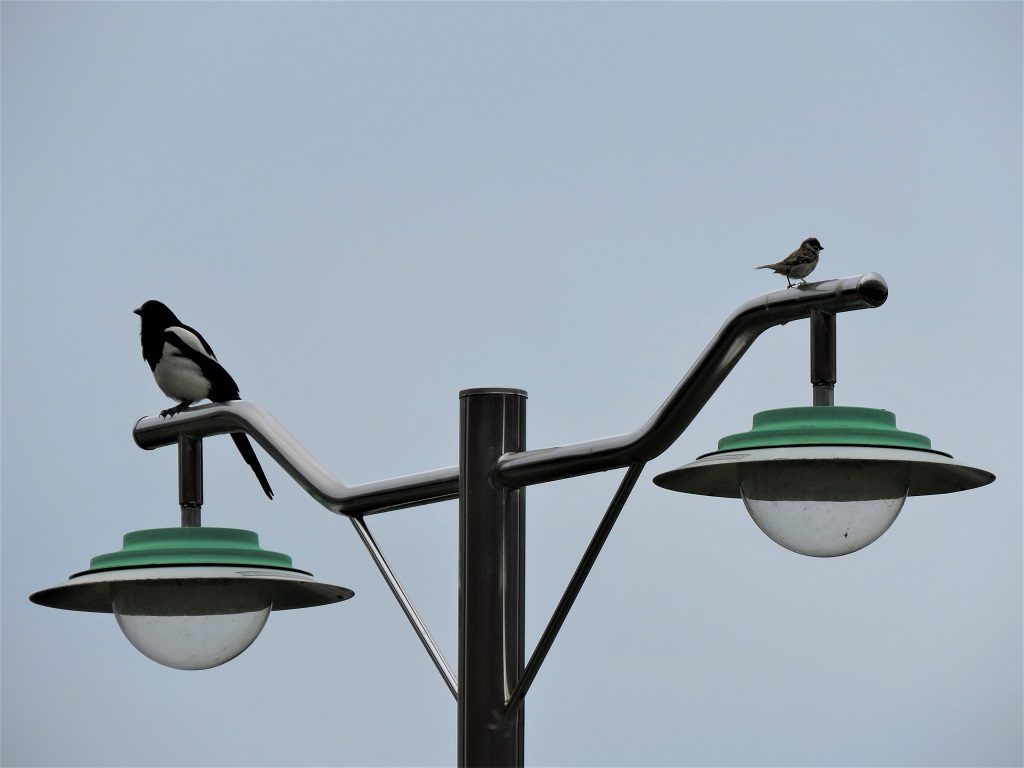“Do we need to care about the environment?”
Leonardo DiCaprio, a fat globe-trotting baboon whose carbon footprint probably stands to yours or mine as the Earth stands to an anthill, claims that we have nine years to save the planet. John Kerry, a billionaire and fifty-year establishment pontificator who now looks like a wax figure of himself after ten minutes in a kiln, continues to assert that “We’re in trouble” — which would certainly be true if any of his previous deadlines for saving the planet, having already passed, had been correct. Celebrity planet-savers, as we all know, are wont to say the funniest things, and then to carry on blithely with their activist propagandizing as each of their endless string of doomsday clocks runs out without anything having changed discernibly, let alone cataclysmically.
Meanwhile, in the real world, where we all have to struggle through our delicate and all-too-limited lives, trying to find food and shelter in this echo chamber of hypnopaedic wisdom about “the environment,” actual human beings — as opposed to bloated baboons and melting wax figures — try to digest the incessant rhetoric from on high without going mad or losing our humanity.
This morning, I received the following topical musing from a student I know well, an intelligent woman in her mid-twenties who lives alone in a modest apartment while she tries to find a reasonable way to make a living, and a path to self-respect and moderation:
Do we need to care about the environment?
I mean if I need to do that, what can we do to protect the environment?
Maybe I can do small things (not waste stuff, use plastic as little as possible) in my daily life.
But I feel like I’m lost when I encounter some questions like how to solve specific problems like global warming, desertification, lack of water, environmental diseases, nuclear power generation, forest destruction, etc.
I feel it’s too far from me.
My reply:
The concerns you are asking about are not problems you have discovered or noticed yourself, but problems that you have heard we are supposed to care about (from the media, the government, celebrities, and so on). Therefore, you should begin your thinking about “what to do” by asking yourself some questions.
Definitions
What does “the environment” mean, exactly?
What does “care about the environment” mean?
Why do the people telling us to care about the environment never say “nature”? Why “the environment”?
Are humans part of “the environment”? — in which case caring about the environment would include caring about ourselves?
Goals
What does “protecting the environment” mean?
How would we determine whether the environment has been “protected”? In other words, what condition do we have to create in order to say the environment is now “safe”? (Safe from what? Safe for what? Safe on what standard?)
What does the environment (whatever that is) need to be protected from? I mean, how is “it” experiencing harmful changes, and how do we know that “it” is experiencing the changes as harmful?
Environmental Correction
How do we know that warming, desertification, and other changes in “the environment” are bad changes? Bad for what?
Was nature always perfectly stable and unchanging in the past? If not, then why do we assume that any changes happening now must be “stopped” or “fixed” somehow?
Is “the environment” on Earth changing more than “the environment” on other planets we know about? If so, how much more?
Is our planet’s environment affected by anything from outside of our planet’s atmosphere, such as changes on the sun? Could (or should) we try to do anything about those solar system changes?
Why do we think we have the power to control the long-term effects of life and climate on an entire planet? And why do we think we should have that power?
Humans and the Environment
What should we as humans be willing to sacrifice for the sake of “protecting the environment”? Should we sacrifice economic progress? Should we sacrifice the chance to lower global poverty? Should we sacrifice individual freedom? Should we sacrifice technology, electricity, agriculture? If so, how much of these things should we be willing to sacrifice? What rule should we apply to decide how much poverty, inefficiency, and discomfort we should accept for the sake of “the environment”?
Who should have the authority to make such decisions for everyone? Where would those people get that authority?
As for your personal responsibility, I would look at it this way:
You live in your own home. Do you want your home to be dirty or clean? Are you willing to give up a little of your free time or immediate pleasure to make sure your home environment is clean and neat? Your home is in a neighborhood. Would you prefer if the neighborhood were as clean as your home, or would you like it to be dirty and disgusting? If you would like it to be clean too, then you should avoid doing things that obviously make the neighborhood dirty, such as throwing trash on the ground. And you can extend that behavior out to the wider community: Avoid doing things that unnecessarily make the community dirty or damaged, so that your home can be kept clean in a neighborhood that is clean within a community that is clean.
But always remember that you are not dirt. You have a right to be in your home, in your neighborhood, and in your community. That means you have a right to take care of yourself, to do the things you need to do to live comfortably, and to help the people you care about. Do you think you should be prepared to commit suicide to protect your home from your dirt? Likewise, you have no obligation to sacrifice your life for the cleanliness of the neighborhood or the community. And therefore you cannot demand that anyone else make that ultimate sacrifice either. Everyone has a right to live as well as possible, and has to make a reasonable judgment about what he has to do to live well, while trying to avoid causing unnecessary harm to his home, neighborhood, and community.
In the end, no matter what we do, we will all die soon, but “the environment” will still be here, for millions and millions of years after we are gone. And it will keep changing, radically, regardless of what we do today. But if you want your home and your life to be clean and neat, which you do, then you have a responsibility to yourself to avoid making a mess or leaving unnecessary trash for others to clean up after you are gone.



